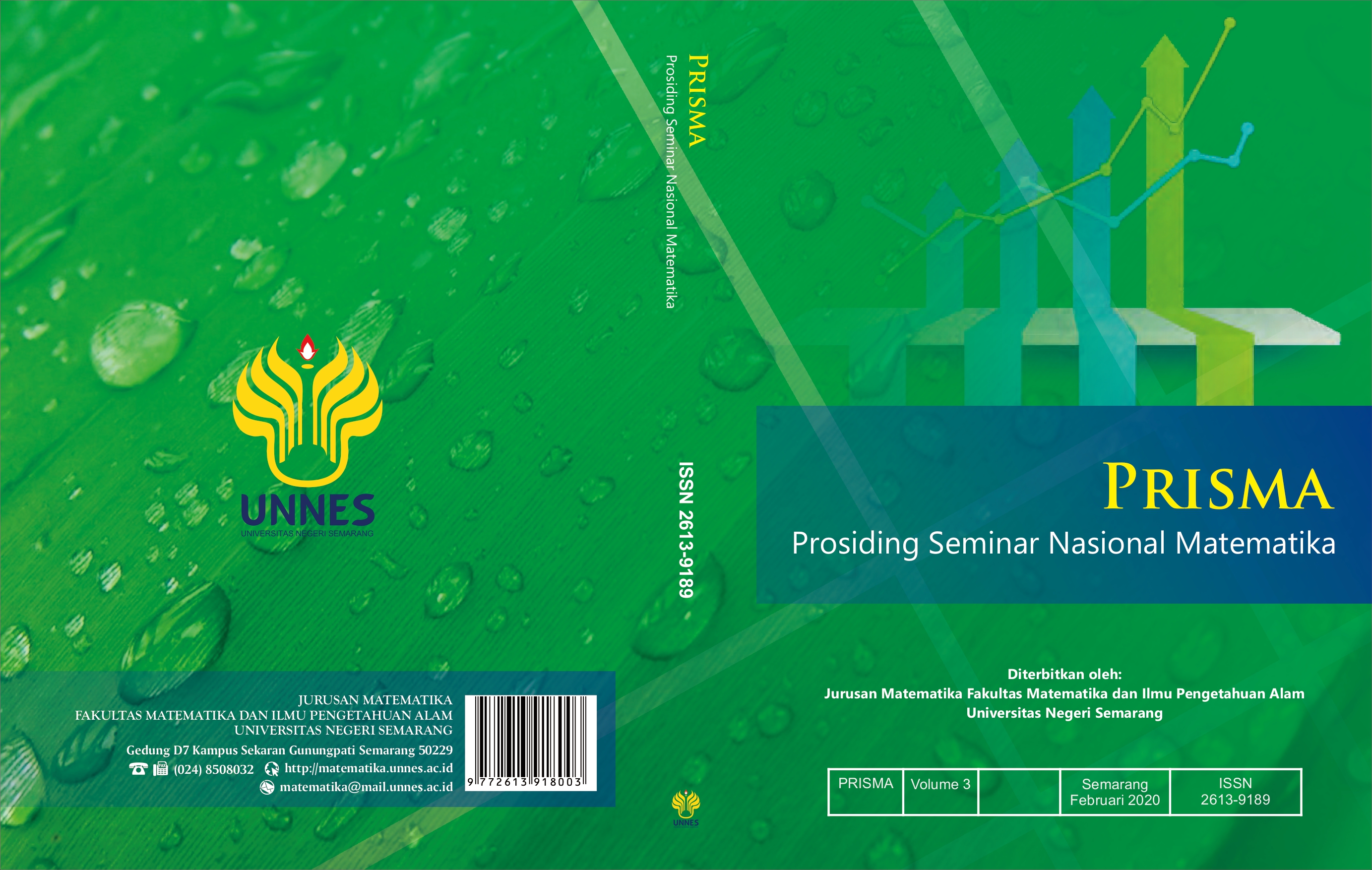Kemanfaatan Divergent Problems melalui Tahap Pelevelan Scaffolding Guru untuk Menumbuhkan Advanced Mathematical Thinking Siswa SMA
Main Article Content
Abstract
Siswa SMA perlu memiliki advanced mathematical thinking. Pertumbuhannya dapat diukur melalui tahap pelevelan scaffolding guru untuk menumbuhkan advanced mathematical thinking ini. Permasalahannya: (1) Bagaimana mengidentifikasi pelevelan scaffolding oleh guru untuk menumbuhkan advanced mathematical thinking? (2) Bagaimana mendapatkan hasil analisis untuk menumbuhkan advanced mathematical thinking siswa SMA melalui solusi divergent problems berbasis pada pelevelan scaffolding guru? Metode penelitiannya dengan pendekatan kualitatif. Subjek penelitian ini adalah mengambil 6 siswa SMAN 1 Ungaran. Kegiatan penelitian: (1) melakukan identifikasi pelevelan scaffolding oleh guru SMA untuk menumbuhkan advanced mathematical thinking, (2) menganalisis pemikiran mendasar untuk menumbuhkan advanced mathematical thinking siswa SMAN 1 Ungaran melalui solusi divergent problems berbasis pada pelevelan scaffolding guru, (3) melakukan analisis solusi divergent problems berbasis pada pelevelan scaffolding guru; wawancara; analisis data; triangulasi. Hasilnya: (1) Teridentifikasi pelevelan scaffolding oleh guru untuk menumbuhkan advanced mathematical thinking. (2) Diperoleh hasil analisis tentang kemanfaatan divergent problems melalui tahap pelevelan scaffolding guru untuk menumbuhkan advanced mathematical thinking siswa SMA. Saran yang direkomendasikan: Guru SMA perlu melatih siswanya agar mampu mengerjakan soal-soal matematika divergent problems dan memberikan scaffolding.
Article Details
References
Bosanquet, P., & Radford, J. (2018). Teaching Assistant and Pupil Interactions: The Role of Repair and Topic Management in Scaffolding Learning. British Journal of Educational Psychology, 89, 177–190
Brower, R. L., Woods, C. S., Jones, T. B., Park, T. J., Hu, S., Tandberg, D. A., ... & Martindale, S. K. (2018). Scaffolding Mathematics Remediation for Academically at-Risk Students Following Developmental Education Reform in Florida. Community College Journal of Research and Practice, 42(2), 112-128.
Fernández, C., Sánchez-Matamoros, G., Valls, J., & Callejo, M. L. (2018). Noticing Students’ Mathematical Thinking: Characterization, Development and Contexts. Avances de Investigación en Educación Matemática, 13, 39-61.
Gomez, Jose G. (2007). What Do We Know About Creativity? The Journal of Effective Teaching an online journal devoted to teaching excellence. 7(1), 31-43.
Hajesfandiari, Behnaz; Mehrdad, Ali Gholami, and Karimi, Lotfollah. (2014). Comparing the Effects of Convergent and Divergent Teaching Methods on Using Articles by Iranian EFL Learners. International Journal of Educational Investigations, 1(1), 313-327.
Miles, Matthew B & Huberman, A Michael. (2014). Qualitative Data Analysis – A Methods Sourcebook. Third Edition. London: SAGE Publication.
Onal, H., Inan, M., & Bozkurt, S. (2017). A Research on Mathematical Thinking Skills: Mathematical Thinking Skills of Athletes in Individual and Team Sports. Journal of Education and Training Studies, 5(9), 133-139.
Sangpom W, Suthisung N, Kongthip Y & Inprasitha, M. (2016). Advanced Mathematical Thinking and Students’ Mathematical Learning: Reflection from Students’ Problem-Solving in Mathematics Classroom. Journal of Education and Learning. 5(3). 72-82.
Sriraman, B. (2017). Dimensions of Mathematical Thinking and Learning in ACCEL. Roeper Review, 39(3), 206-209.
Stockero, S. L., Rupnow, R. L., & Pascoe, A. E. (2017). Learning to Notice Important Student Mathematical Thinking in Complex Classroom Interactions. Teaching and Teacher Education, 63, 384-395.
Taylan, R. D. (2017). Characterizing a Highly Accomplished Teacher’s Noticing of Third-Grade Students’ Mathematical Thinking. Journal of Mathematics Teacher Education, 20(3), 259-280.
Smit, J., Gijsel, M., Hotze, A., & Bakker, A. (2018). Scaffolding Primary Teachers in Designing and Enacting Language-Oriented Science Lessons: Is Handing Over to Independence a Fata Morgana?. Learning, Culture and Social Interaction - Elsevier, 18, 72-85.
Roessler, S., & Allison, M. (2018). A Gender-Aware Gamified Scaffolding of Mathematics for the Middle School Level. In Proceedings of the 2018 International Conference on Big Data and Education, 121-126.
